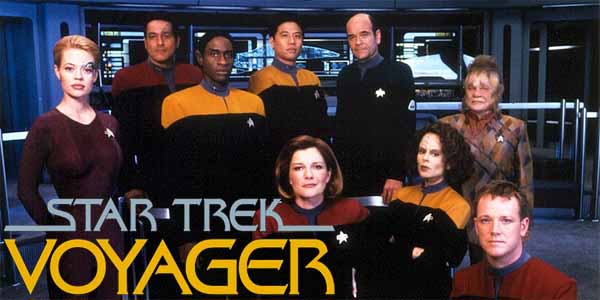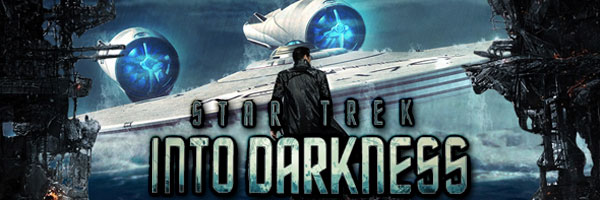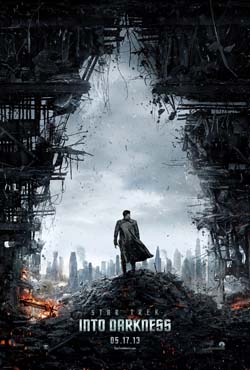
In my last post, I vented some of my frustrations with Star Trek: Voyager. Primarily, I ranted about how the series mostly failed to follow through with its central premise of being about the ship being lost and isolated on the other side of the galaxy. But I still have more complaints with Voyager. A side effect of the show not following its "lost and alone" premise to its logical conclusion, the show ended up feeling like it was trying too hard to be a Next Generation copy-cat.
Steve Shives also brought up this complaint in his Youtube video "What's My Problem With Voyager?", and I echo the criticism. Voyager had the frustrating habit of retelling stories that had already been told (usually better) in Next Generation. Star Trek shows have always repeated archetype characters, but TNG and Deep Space Nine were very good about paying homage to the earlier shows, without outright copying them.
Many characters feel like slight variations of characters from TOS and TNG.
For example, it could be argued that Data in TNG is a copy-cat of Spock. Dr. McCoy, after all, frequently referred to Spock as a "computer", and Mr. Data is [literally] a computer. But Data isn't a copy-cat of Spock. He's actually more a reflection of Spock (though, admittedly, Spock's arc in the movies and in "Unification" does paint him as being more similar to Data). Spock (in the Original Series) derided his humanity and fought very hard to subdue and quell it. Spock was like a Dr. Jekyll who thought his human half was the monstrous Mr. Hyde. Data, on the other hand, inverts this concept and is more of a Pinocchio (which Riker explicitly spells out for us in "Encounter At Farpoint").
Data wasn't a copy of Spock, he was an inverted reflection.
Also, Spock was dueling with his human half throughout the Original Series and into the movies. That's a dynamic that isn't present in Data at all. That dynamic is present, however, in Worf! Then, of course, there's the whiz kid element of Spock's character, which was transcribed onto Wesley in TNG. So TNG took inspiration from the Original Series' most popular character (Spock), but instead of copying him with minor variations, it split Spock's attributes into multiple characters.
[More]
2c5a81e1-f421-43b4-a73f-c4e9164e3c2a|0|.0
Tags:Star Trek, Star Trek: Voyager, U.S.S. Voyager, Star Trek: the Next Generation, Star Trek: Deep Space Nine, Delta Quadrant, Starfleet, Maquis, Kazon, Hirogen, Borg, Kathryn Janeway, Seven of Nine, The Doctor, Kes, Chakotay, Tuvok, Neelix, Tom Paris, B'Elanna Torres, Harry Kim, Borg Queen, Boothby, Reginald Barclay, Q, Data, Spock, Worf, Quark

A couple years ago, I wrote about the show that I wish Star Trek: Enterrpise had been. Enterprise completely dropped the ball as a prequel and as a bridge between our time and the time of the original Star Trek, by screwing up at fundamental levels of its conception and design. But Enterprise wasn't the first Star Trek series to do this. Its immediate predecessor, Star Trek: Voyager had already started this trend, which has sadly carried onto into all incarnations of Star Trek since.
I rarely talk much about the reasons that I think Voyager is an inferior show to Next Generation and Deep Space Nine. The closest I've come so far was my rant about the Borg, a brief retrospective as part of the 50th anniversary, and a few off-hand jabs at Voyager in some of my other Star Trek posts. This past summer, Steve Shives published a video on Youtube called "What's My Problem with Voyager?" in which he vents some of the same complaints that I have. Steve has some pretty excellent content on his channel, and I highly recommend checking him out if you enjoy my Star Trek content. Anyway, his video inspired me to vent some of my own frustrations with Voyager that he either didn't cover, or for which I feel I have additional insight.
Steve Shives, creator of "Trek, Actually", posted his problem with Voyager on Youtube.
Just like Steve, I want to start by stressing that I don't hate Star Trek: Voyager. I don't think it's as good as its predecessors, but it's perfectly watchable.
When I first started drafting this, it was going to be a short list of complaints. However, as I re-watched the show, the post ballooned with examples. As such, I'm going to split this into several parts. This first part will probably be the longest (so bear with me please) and will focus on what I perceive as a failure of Star Trek: Voyager to adequately build upon the foundations of its premise. The next post will be about how I perceive Voyager as a lazy copycat of The Next Generation.
At a conceptual level, Voyager begins with two foundational pillars: the ship is stranded on the opposite end of the galaxy; and a quarter of the crew has been replaced by Maquis freedom fighters and terrorists instead of trained Starfleet personnel. The show almost completely whiffs on both of these concepts. I would say that there are also two other foundational pillars of the show, but each of these only lasts for half the series. In the first half of the series, a major source of conflict is the fact that Voyager possesses technology far superior to the races and civilizations that it encounters; thus, bringing the Prime Directive into sharp focus and testing the crew's resolve to obey the Directive in such desperate circumstances. In the second half of the series, we have the Borg (which I will be discussing again).
Voyager is isolated and alone, without the resources of the Federation or a starbase.
All four of these are very strong concepts and well worth exploring. Unfortunately, Voyager almost completely abandons its two initial foundations, and (again) completely whifs when it comes to the Borg (though, admittedly, a big part of that is Star Trek: First Contact's fault). The only concept that Voyager really sticks the landing on is the idea of technological disparity between Voyager and its foes in the first couple seasons. [More]
f844da9a-60ad-4a3a-b28a-f06121578938|5|1.8
Tags:Star Trek, Star Trek: Voyager, Star Trek: Enterprise, U.S.S. Voyager, Delta Quadrant, Starfleet, Maquis, Kazon, Hirogen, Borg, Kathryn Janeway, Seven of Nine, Jeri Ryan, The Doctor, Kes, Chakotay, Tuvok, Neelix, Tom Paris, B'Elanna Torres, Harry Kim, Joe Carey, Lyndsay Ballard, Ensign Jetal, Borg Queen, Gilligan's Island, Prime Directive, Steve Shives

Who doesn't like a good hamburger?
Hamburgers are a pretty casual, always-tasty meal that can range from a bland and simple fast-food cheeseburger to a gourmet bacon burger.
Me, I'm a big ribs guy! They're my favorite. Lone Star Steakhouse always made the best ribs - ribs fit for a Caesar's Memorial Day barbeque - but it's hard for me to say "no" to just about any rack of ribs. Sadly, all the Lone Stars in town are closed, and I've yet to find a true successor.

How does this relate to Star Trek Into Darkness? The original Star Trek series and Star Trek: the Next Generation are like those Lone Star ribs to me. They're my favorite. A really good science fiction movie - like 2001: A Space Odyssey, or Terminator, or Moon, or maybe even the recently-released Oblivion - is like a visit to [say] Famous Dave's to have some ribs. It's good, but it's still not Lone Star good! These new Star Trek movies, however, aren't even like ribs to begin with. They're more like hamburgers. Yeah sure they're a satisfying meal, but sometimes, I don't want a hamburger; I want ribs!
Into Darkness isn't what I wanted in a "Star Trek" movie at all. Even worse, it's worth as a movie is mostly superficial.
Into Darkness reminded me a lot of two other Star Trek movies: Star Trek V: the Final Frontier and Star Trek Nemesis.
The Final Frontier is widely-regarded as the worst original-cast Star Trek movie (and rightfully so). It's premise is silly. The script is poorly-written (although still much more coherent than many of today's movie scripts - including Into Darkness). And the special-effects are atrocious! It was like one of those really bad episodes of the original series brought to life on the big screen with a slightly higher budget. But it did have one redeeming characteristic. The beginning and end of the movie consist of the camping scenes with Kirk, Spock, and McCoy, and these scenes are actually really good. They're character-driven scenes in which we learn a little bit about the adventurous spirit of Kirk, his greatest fear, and the desire to explore that drove him to join Starfleet. It manages to further develop a character that had been around in movies and television for over 20 years, and whom one would have thought couldn't be further developed at all.
Kirk: I'm not trying to break any records. I'm doing this because I enjoy it. Not to mention the most important reason for climbing a mountain...
Spock: And that is ... ?
Kirk: Because it's there.
-Star Trek V: the Final Frontier
As bad as that movie was, this simple exchange in this simple scene exemplifies what Kirk, Starfleet, and Star Trek are all about: the desire to go out there and experience the universe! Even if it's dangerous, the rewards of the experience, and the discovery that it brings is worth the risk. This is one of the prime ideologies behind Star Trek. Sure we could send probes out to collect data and send it back to us in the comfort and safety of our laboratories on earth. But why do that when we can go there and experience the universe for ourselves?
And that is a spirit that is sadly missing from Abrams' interpretation of Star Trek. Why does Kirk join Starfleet? Is it because he has a passion for adventure and discovery and expanding the horizons of human experience? Not according to these movies. In these movies, he does it because Captain Pike dared him to. Or maybe because he wants to pursue hot alien pussy, because both movies still treat Kirk like a cartoon horn dog whose eyes pop out of his head whenever a skirt walks by. [More]
337feb10-4d20-45e4-8feb-82ef7d7b0050|2|5.0
Tags:Star Trek, Star Trek 12, Star Trek Into Darkness, J.J. Abrams, Chris Pine, Zachary Quinto, Benedict Cumberbatch, Karl Urban, Simon Pegg, Bruce Greenwood, Peter Weller, Alice Eve, Leonard Nimoy, Ricardo Montalban, James T. Kirk, Spock, Montgomery Scott, Scotty, Leonard "Bones" McCoy, Uhura, Carol Marcus, James Harrison, Khan Noonien Singh, Klingons, Enterprise, Starfleet, Federation, Prime Directive, Star Trek: the Next Generation, Who Watches the Watchers?, Star Trek: the Motion Picture, Star Trek II: the Wrath of Khan, Star Trek V: the Final Frontier, Star Trek VI: the Undiscovered Country, Star Trek Nemesis, Silent Hill Homecoming, Lone Star, ribs, burger, Famous Dave's, reboot, movie
|

| 12 | | | | | | | 60 | | 11 | | | | | | | 55 | | 10 | | | | | | | 50 | | 09 | | | | | | | 45 | | 08 | | | | | | | 40 | | 07 | | | | | | | 35 | | 06 | | | | | | | 30 | | 05 | | | | | | | 25 | | 04 | | | | | | | 20 | | 03 | | | | | | | 15 | | 02 | | | | | | | 10 | | 01 | | | | | | | 05 |
|